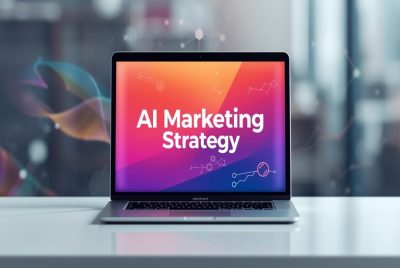Artificial Intelligence (AI) is no longer a futuristic idea—it’s here, shaping industries and changing how businesses…
15 Tips For Hiring The Best Employees To Drive Long-Term Success

Hiring the right employees has never been more important for business owners striving for sustained success. Your team is the backbone of your company, influencing everything from customer satisfaction to innovation and overall productivity.
Yet, the process of identifying and onboarding top talent remains one of the most challenging aspects of running a business.
How do you attract candidates who not only have the right skills but also align with your company’s mission and values?
How can you ensure your hiring practices create a motivated, cohesive team to tackle current demands and future growth?
By sharpening your approach to recruitment, you can establish a strong foundation for success that drives your business forward in an increasingly competitive marketplace.
Let’s cover 15 actionable tips to help you identify and hire the best talent to drive your business forward.
1)) Define Clear Job Roles
Clearly defining job roles is a critical first step in attracting top talent. Detailed job descriptions help potential candidates understand the responsibilities, expectations, and qualifications required for the position.
This clarity not only streamlines the hiring process but also ensures you’re targeting individuals who align with the job’s demands and your organizational goals.
A well-defined role minimizes misunderstandings and sets clear performance expectations, fostering long-term employee satisfaction and productivity.
Setting the stage with a clear job role ensures that your hiring efforts align with the needs of both your company and prospective employees.
2)) Prioritize Cultural Fit
Finding candidates who align with your company’s culture is just as important as evaluating their skills and experience.
Employees who share your organization’s values and vision are more likely to integrate seamlessly into the team, collaborate effectively, and contribute positively to the work environment.
Assessing cultural fit during the hiring process helps reduce turnover while fostering stronger employee engagement and loyalty.
When your team is built on shared principles and mutual understanding, your business is better positioned to maintain a cohesive and productive workplace.
Prioritizing cultural fit ensures long-term success and harmony within your organization.
3)) Use Structured Interviews
Structured interviews are a powerful tool for making objective and informed hiring decisions.
Unlike informal interviews, structured interviews use a consistent set of questions for all candidates, allowing you to fairly evaluate their skills, experiences, and suitability for the role.
This approach minimizes biases and ensures that each applicant is assessed using the same criteria, leading to more transparent and data-driven decisions.
Structured interviews also provide a clear framework for comparing candidates, helping you identify the most qualified individual for the position.
Incorporating structured interviews into your hiring process promotes fairness and increases the likelihood of selecting the best fit for your team.
4)) Leverage Employee Referrals
Employee referrals are an effective way to identify high-quality candidates who are likely to excel in their roles.
When current employees recommend individuals from their professional networks, these candidates often bring a higher level of trust and credibility to the hiring process.
Referrals streamline your recruitment efforts, as referred candidates are more likely to understand the company culture and expectations through their connection with your employees.
This approach can lead to faster hiring times, reduced recruitment costs, and improved retention rates.
Leveraging employee referrals enriches your talent pool with candidates who are both capable and aligned with your team’s dynamics.
5)) Offer Competitive Benefits
Offering competitive benefits is essential for attracting and retaining top talent in today’s job market.
Comprehensive benefit packages that include health insurance, retirement plans, paid time off, and wellness programs demonstrate that your company values its employees’ well-being.
Tailoring benefits to meet the needs of your workforce, such as flexible scheduling or remote work options, can further enhance your appeal as an employer.
Competitive benefits not only help you stand out from competitors but also contribute to higher employee satisfaction and loyalty.
Ensuring your benefits package is both attractive and relevant supports long-term employee commitment and organizational success.
6)) Assess Technical Skills
Assessing technical skills is a vital part of the hiring process, especially for roles that require specialized knowledge or expertise.
Effective skill evaluations can include practical assessments, coding tests, or portfolio reviews to ensure candidates possess the necessary capabilities to perform their tasks efficiently.
This approach provides concrete evidence of their abilities and minimizes the risk of hiring based on inflated resumes or generic qualifications.
Thorough technical assessments create transparency and confidence in your decision-making process.
Evaluating technical skills diligently ensures that you bring in professionals who can meet the demands of the role and contribute meaningfully to your team’s success.
7)) Highlight Growth Opportunities
Providing clear growth opportunities is a critical strategy for attracting ambitious and dedicated professionals to your organization.
When employees see a pathway to advance their careers, whether through training programs, mentorship, or promotions, they feel more motivated to excel in their roles.
Supporting personal and professional development not only enhances employee satisfaction but also improves retention, as individuals are more likely to remain with a company that invests in their future.
Highlighting growth opportunities demonstrates your commitment to fostering a supportive environment where employees can thrive and reach their full potential.
8)) Check References Thoroughly
Checking references thoroughly is a crucial step in the hiring process to verify a candidate’s qualifications, skills, and past performance.
Speaking with previous employers or colleagues provides valuable insights into the individual’s work ethic, reliability, and strengths, helping you make a more informed hiring decision.
This step also helps confirm the accuracy of the information provided during interviews and on resumes.
Taking the time to thoroughly check references ensures you select candidates who align with your expectations and contribute positively to your team’s objectives.
9)) Use Pre-Employment Tests
Using pre-employment tests enables you to evaluate candidates’ suitability for a role through objective measures.
These tests can assess a variety of attributes, including cognitive abilities, personality traits, technical skills, and problem-solving capabilities, providing a comprehensive understanding of a candidate’s potential.
Incorporating such tests into your hiring process ensures consistency and fairness, as all applicants are evaluated on the same criteria.
The data collected from these assessments helps identify individuals who are not only qualified but also a good cultural fit for your organization.
Implementing pre-employment tests enhances the likelihood of hiring candidates who will succeed and positively impact your team’s performance.
10)) Promote Diversity And Inclusion
Promoting diversity and inclusion is essential for building a workplace that values and respects individual differences while fostering innovation and collaboration.
A diverse team brings together unique perspectives, experiences, and skills that can drive creativity and improve decision-making.
Cultivating an inclusive culture through policies, training, and open communication ensures that every employee feels valued and empowered to contribute.
Organizations that prioritize diversity and inclusion not only enhance employee engagement but also position themselves as leaders in their industry.
Creating an environment that embraces diversity strengthens your workforce and supports long-term success.
11)) Seek Aligned Values
Seeking aligned values is a fundamental component of building a cohesive and productive team.
When employees share the core principles and mission of the organization, they are more likely to contribute with passion and a sense of purpose.
During the hiring process, assessing a candidate’s values through behavioral questions or scenarios can offer insight into their compatibility with the company culture.
Ensuring that new hires resonate with your organization’s vision not only enhances collaboration but also fosters a supportive and harmonious work environment.
Prioritizing aligned values strengthens team dynamics and positions your organization for sustainable growth.
12)) Evaluate Emotional Intelligence
Evaluating emotional intelligence is a vital element in identifying candidates who can effectively manage their emotions and build strong interpersonal relationships.
Emotional intelligence encompasses self-awareness, empathy, adaptability, and effective communication, all of which contribute to success in team-oriented environments.
This trait is particularly valuable in roles that involve collaboration, leadership, or conflict resolution, as it enables individuals to handle challenges with poise and professionalism.
Integrating emotional intelligence assessments into the hiring process ensures a more holistic evaluation of a candidate’s potential to thrive within your organization.
Prioritizing emotional intelligence enhances workplace harmony and drives overall organizational success.
13)) Streamline Onboarding Process
Streamlining the onboarding process is essential to ensuring new employees transition smoothly into their roles and become productive members of the team.
A well-structured onboarding program provides clear guidance, training, and resources while fostering an early sense of belonging.
Simplifying the process through modern tools, digital platforms, and clear communication helps employees feel supported and reduces unnecessary delays.
Personalized onboarding plans can further enhance engagement, addressing the specific needs and responsibilities of each new hire.
Focusing on a streamlined onboarding experience sets the foundation for long-term employee satisfaction and organizational success.
14)) Monitor Hiring Metrics
Monitoring hiring metrics is a critical practice for evaluating the effectiveness of your recruitment strategies and ensuring continuous improvement.
Key metrics, such as time-to-hire, cost-per-hire, quality of hire, and candidate conversion rates, provide valuable insights into the performance of your hiring processes.
Analyzing these metrics allows you to identify areas of success and address challenges, leading to a more efficient and data-driven approach to talent acquisition.
Regularly tracking and reviewing hiring metrics helps refine your strategies, ensuring you attract and retain the best candidates while optimizing resources and achieving organizational goals.
15)) Continuously Improve Processes
Continuously improving processes is a crucial aspect of fostering efficiency, innovation, and adaptability within any organization.
By regularly evaluating workflows and identifying inefficiencies, teams can implement changes that not only save time but also enhance the quality of outcomes.
Leveraging feedback from employees, stakeholders, and customers provides valuable insights into areas for refinement, enabling ongoing growth and development.
Utilizing technology and data-driven strategies to streamline operations ensures that the organization remains competitive in an ever-changing market.
Prioritizing continuous improvement helps maintain organizational agility and drives sustained success.
Conclusion
Effective hiring and talent management are the backbone of a successful business.
For business owners, implementing these strategies not only ensures the recruitment of top talent but also creates an environment that nurtures growth, collaboration, and innovation.
Whether it’s aligning values, evaluating emotional intelligence, or continuously improving processes, these practices provide a roadmap for building a resilient, high-performing team.
By adopting these approaches, business owners can strengthen their workforce and position their organization for long-term success in an increasingly competitive marketplace.





